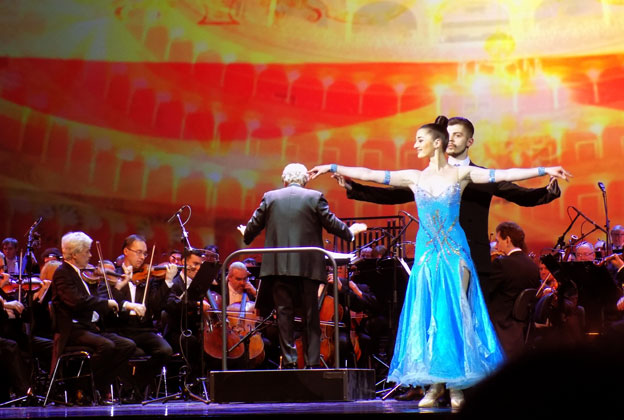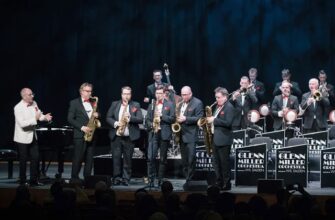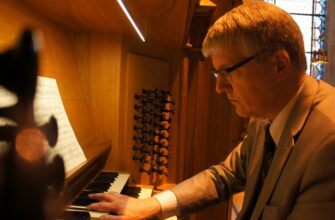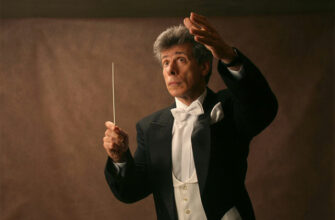Vladimir Ivanovich Fedoseyev, Artistic Director and conductor of the Bolshoi Symphony orchestra and people’s artist of the USSR, gave a concert titled “Big Russian waltz” on the main stage of the Great Kremlin Palace. This was the second performance of the famous orchestra from the cycle “Affordable classics”.
The program included the world-famous Russian waltzes as follows: M. Glinka (Waltz-fantasy from the Opera “Life for the Tsar”), Alexander Glazunov (Concert waltz No. 1 in d major), waltzes from the ballets of P. Tchaikovsky (“the Nutcracker”, “Sleeping beauty”, “Swan lake”), Sviridov (“Blizzard”), as well as waltzes by F. Schubert in the edition of E. Denisov. The latter was performed together with pianist Katia Skanavi.
This performance of the Bolshoi Symphony orchestra has had a fascinating impact on the audience. The works whose relevance is not decreasing but increasing with time, and the highest level of mastery of the orchestra, and special spirituality of the Maestro, which is spread in the room, and in the most delicate areas of the compositions it creates some whether crystal, or lace the sound of heavenly lightness.
What was the disappointment that the concert is over! Charmed audiences for some time did not get up from their seats… But ahead is still a series of “Affordable classics”: “peace Marches” (February 19, 2017) and “the Best waltzes and polkas of the world” (21 may 2017).
We believe that excellence in music skills forms the availability of the accessibility of classical music to audience. All spectators, regardless of musical education, can hear whether the musicians play well. Cultural-political magazine “E-Vesti” asked V. Fedoseev to talk about his understanding of the availability of classical music.
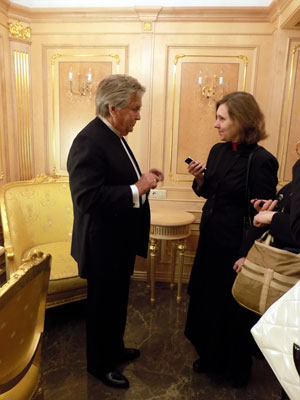
E-Vesti: Vladimir Ivanovich, tell, please, today you make the classics available, but there are different approaches to availability. What is available classics for you?
Fedoseev V.I.: You see, everything is initially born from nature, from people, and than it forms classics, but it is based on people’s authenticity. Then comes a classics, which is eternal music.
For example, our show tonight is the waltzes that are so dear to the Russian soul. And the waltzes differ in countries, but Russian waltz is something special, I cannot compare it with the Vienna waltz, because, as a rule, the Russian musicians cannot play a Viennese waltz music. It’s a different style, it’s a different life the waltz, even rhythmically. There are also three segments, but they felt different. We have a ONE-two-three, ONE-two-three, and they have one-TWO-three one-TWO-three. This difference is seemingly invisible, but this is the Vienna style.
I will tell you an example, when I started to lead the Vienna orchestra, my first program was held from Viennese waltzes. I was worried because they do not forgive Russian musicians the output from the Vienna style. But when I played this concert, the following day was published an article that, perhaps, Johann Strauss, being in St. Petersburg, sinned with a Russian woman, so this musician was born in the blood he felt Viennese music. I was of course happy, this is very hard to get into another nation being son of his nationality.
Also, on the contrary – neither the Germans or the French can’t play Russian waltz as Russian musicians. Though sometimes the musical ideas of Glinka, Rimsky-Korsakov, Tchaikovsky got into music of any nation. When Glinka lived in Spain, the common people believed he was a Spanish composer. Romances to words by Robert burns by Sviridov gave the British a feeling that this is not Russian, but their composer. This is our specialty, speciality of Russian musicians. We enter very quietly into the musical culture of another nation.
Today we play the waltz “Birch” by Draisine, an old-time waltz. All our parents and grandparents enjoyed similar to the waltz “On the hills of Manchuria” I. Shatrov, which was written by Amateurs, but they were so captured the mood of that time… And today we wanted to show it all.
E Vesti: Vladimir, you are often on tour abroad. The availability of the classics in terms of perception there is higher or lower?
Fedoseyev V.: In Vienna or in Paris, the audience is more prepared, there is more education.
But, traveling through Russia, I felt that the music should be listened with soul, not necessarily to understand what is happening from the point of view of merit. One understands, another that way, and the perception of music greatly. It has more dignity and understanding. And now it goes to the children, to the next generation, they feel it. People in the West sometimes go to concerts for the prestige, or to wear some dress, but we in jeans and viewers can come anyway, if only to listen to music.
E-Vesti: Vladimir, is a waltz available for perception?
Fedoseyev V.: The waltz is a very simple melody, and the melody is important in music. After all, if there is no melody there is no music.
So contemporary art is not always steady, it appears and then stops because there is no melody, nothing to hold onto. I can’t remember any modern song and all the songs of the war years I remember at least their motive. So when we recently had concerts of songs of military years in Belarus, in Leningrad, where he shed tears. And even in Berlin where we played songs of the war years, the Germans cried. Such influence is an art.
Sources: Kremlin Palace, Big Symphony Orchestra
